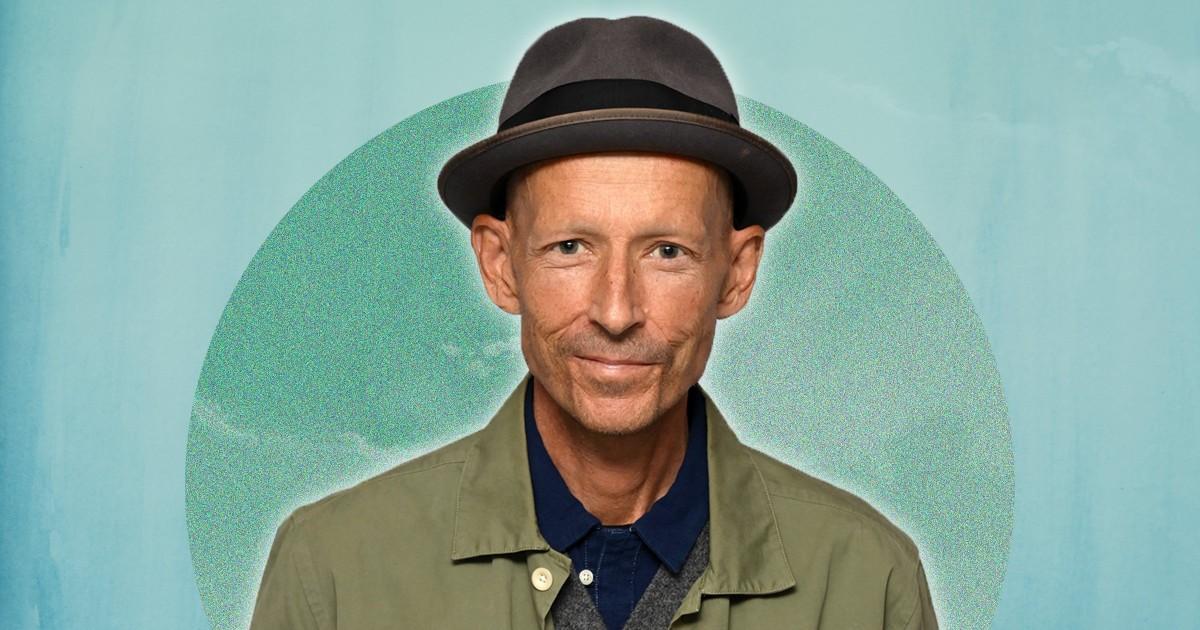
Lung cancer is one of the most common cancers in the UK, but the misconception that it’s ‘just a smoker’s disease’ is harmful.
A Place In the Sun’s Jonnie Irwin’s heartbreaking diagnosis has driven lung cancer to the forefront of our minds.
He’s been told his disease, which began in his lungs and has spread to his brain, will ultimately make him one of the roughly 34,800 people in the UK who die with lung cancer every year, according to Cancer Research UK.
That’s 95 people in this country dying of the disease every single day.
Even though lung cancer is the third most common in the UK – behind breast and prostate – the charity says that it’s the top most common cause of cancer death.
And of the tens of thousands of people who are lost each year, according to Dr Deborah Lee, of Dr Fox Online Pharmacy, 6,000 of them have never smoked.
She tells Metro.co.uk: ‘14% of lung cancer cases in the UK occur in people who’ve never smoked.
‘When we say “never smoked”, we mean people who’ve smoked less than 100 cigarettes in their lives.’
Dr Deborah says the messaging around lung cancer needs to change to make sure that non-smokers know they’re not immune to the disease.
After all, if you don’t think you’re at risk, why would you watch out for symptoms?
‘Historically,’ she explains, ‘the clear public health message was that smoking caused lung cancer. This led those who didn’t smoke to think they’re not at risk.
‘But now, 85% of the population doesn’t smoke, so we need to change the message and alert everyone that lung cancer in non-smokers is common, and we all need to be vigilant about symptoms.’
This is utterly vital, given the fact that an early diagnosis can save your life.

Dr Deborah also says that, while non-smokers tend to have non-small cell adenocarcinoma and smokers tend to get small cell and squamous cell tumours, the different behaviours of these cancers doesn’t mean they respond any differently to treatment.
Nor does it mean that non-smokers have any better chances of survival than their smoking counterparts.
So what are the top non-smoking related causes of lung cancer?
Second-hand smoke
Yes, just being around smokers can be harmful too.
Dr Deborah says: ’15-35% of cases are due to breathing in second-hand smoke.
‘Being a non-smoking woman married to a male smoker increases her risk of lung cancer by 27%.’
Heavy metals
Asbestos, arsenic, and chromium are known to cause lung cancer.
‘These are environmental pollutants,’ explains Dr Deborah, ‘which can be found in the air from industrial pollution, landfill sites, and in some parts of the world, in the water.’
Radon gas
It’s thought that radon gas – most of which can be found in Southwest England and Wales – is to blame for 2% of lung cancer cases.
‘It’s found in soil, rock, and underground water,’ says Dr Deborah.
‘Radon is thought to cause around 1,000 cases of lung cancer in the UK every year. Your house can also be tested for radon.’
Common symptoms of lung cancer that non-smokers should look out for
Dr Deborah says: ‘Don’t be afraid to see your GP if you have the following symptoms. Despite the NHS pressures, doctors do want to see you. The sooner you get help the better – don’t delay.
‘Non-smokers should look out for the following symptoms:
– A cough that won’t go away
– Coughing up blood
– Feeling persistently out of breath
– Pain when breathing or coughing
– Tiredness
– Unexplained weight loss (NHS)
‘Other signs include
– Recurrent respiratory infections
– Chest pain
– Back, neck or shoulder pain
– Loss of appetite
– Feeling generally unwell’
Genetics
Family history also has a part to play in your likelihood of getting lung cancer.
‘Non-smokers with a family history of lung cancer are at an increased risk,’ points out Dr Deborah.
Lung disease
And finally, it’s thought that lung diseases could also be a factor, but this one’s been harder for the professionals to gauge.
‘Lung diseases, including the effects of chemotherapy or radiotherapy, may increase the risk of lung cancer,’ says Dr Deborah, ‘but this is hard to quantify since so often patients are also smokers.’
What can non-smokers do to minimise their risk of getting lung cancer?
It should come as no surprise that the first thing Dr Deborah says is: ‘Stay away from tobacco.
‘Do not breathe in second-hand smoke.’
She also recommends reducing your exposure to pollution in the air as much as you can.
‘Drive your car less,’ she says, ‘don’t have fires in the house or at home, use less energy, and plant and look after trees.
‘Stay inside on hot, still days when pollution levels are high, and keep doors and windows closed. Unfortunately wearing masks has not been shown to help.’
You can also get a radon survey done to check whether your house is in a hotspot and eat a balanced diet full of antioxidants.
‘Fresh fruit and vegetables contain high levels of antioxidants,’ she says, ‘especially those with bright colours – think beetroot, carrots, spinach, kale, strawberries, and blueberries.’
Do you have a story to share?
Get in touch by emailing [email protected].
Source: Read Full Article



